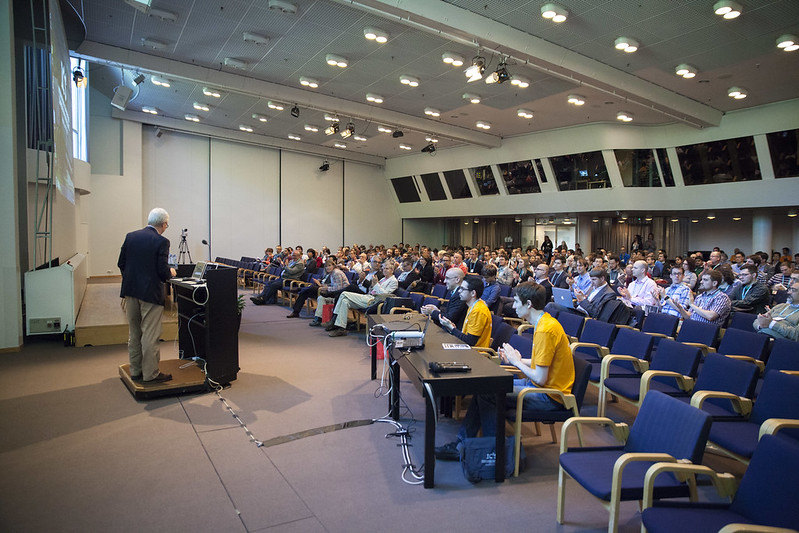Data science is spreading throughout business sectors and research fields. Computational social sciences is a field that “leverages the capacity to collect and analyze data at a scale that may reveal patterns of individual and group behaviors”. This is highly interesting and not too far from many business-oriented data science use cases where the aim is to understand customer behavior.
I was thus very excited to participate the first International Conference on Computational Social Science (ICCSS), held in Helsinki in June. Organised by Santo Fortunato and collegues from Aalto University, the event was a great success with over 500 submitted abstracts, 400 participants, and great practical arrangements.

ICCSS opening session. Photo by Mikko Raskinen / Aalto University. See more photos here.
The event featured a world-class lineup of keynote speakers. Below I listed some points from the talks I attended, and for full coverage you can check the presentation videos on Youtube:
- Michael Macy: Network data sets are advantageous over traditional sample surveys, as they cover also the social network context affecting people’s actions and opinions, in addition to individual attributes.
- Jure Leskovec: How feedback influences human behaviour, based on a massive Disqus data analysis.
- Albert-Lázló Barabási: Findings from studying success in science, i.e. citation dynamics over the career of a researcher. One result: it seems to be more or less random when a scientist makes her most influential piece.
- Nicholas Christakis: How social networks influence things such as obesity and happinnes - is it induction, homophily or context?
Other high-level keynotes included Duncan Watts, and also Sandy “Social Physics” Pentland, whom I missed because I was listening to another great character, Nassim Nicholas Taleb, in the nearby Tomorrow event. Check the nice coverage of Taleb and his tale of hope in Reaktor’s blog.
From the keynotes it became clear that the first wave of computational social science research is very network-focused. This is understandable, as the popularity of social networks now allow research on interaction patterns that simply were not possible earlier. However, I hope that in the field can extend beyond networks analysis in the future. For example, the increasing amount of open government data creates interesting opportunities for computational research. A great example was presented by Veikko Eranti and colleagues in their poster Topic Modeling the Global Climate Policy Debate.
At rOpenGov we are working to make open government data more accessible to researches. In our poster on Open Data Analytics and Reproducible Research we promoted both the possibilites of open data analytics and also reproducible research. Computational social science is now in a great position to adopt the open science practices developed in other fields, more matured computational science fields, such as bioinformatics.
As Reaktor was one of the sponsors of the event, I had the chance to give a talk in the Industry meets Science session. I presented our work on modelling and visualisation of regional apartment price data in Finland. The interactive visualisation can be found at kannattaakokauppa.fi, and my slides can be found here.
The event was a great start for the emerging field and we will surely see nice research to be presented in the future events.